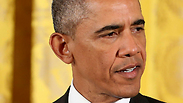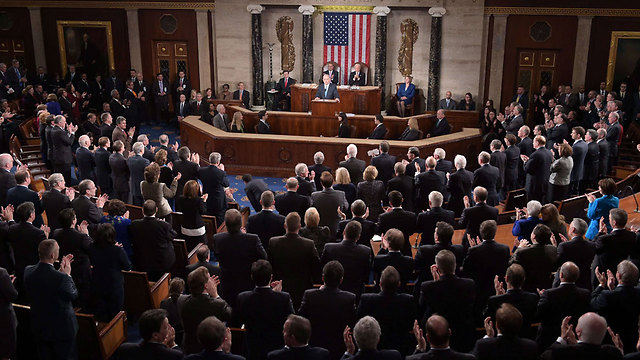
Obama reinforces Iran win
If the 41 senators now openly supporting the nuclear deal stick to their guns, those opposing it in Congress will not be able to pass a resolution of disapproval.
WASHINGTON – Democrats clinched the crucial US Senate votes Tuesday to block passage of a disapproval resolution against the Iran nuclear accord, an outcome that would be a major victory for President Barack Obama against united Republican opposition.
The declarations of support by three Democrats, bringing the total to 41, should block those who oppose or might oppose the deal – 54 Republicans and three Democrats – from passing a resolution of disapproval that would require the president to use his veto power.
Early on Tuesday, Sen. Joe Manchin announced his opposition to the deal, a surprise "no" vote from a moderate Democrat who had sounded like he favored the pact.
But that setback for supporters was erased within the hour as three Democrats seen as potential "no" votes on the deal all announced they would support it. Those senators were Richard Blumenthal, Ron Wyden and Gary Peters.
But amid fast-paced developments as lawmakers returned to Washington from their five-week summer recess, supporters of the deal stopped short of declaring victory. That was because it remained uncertain whether all 41 Democratic and independent senators now on record in favor of the deal would also support delaying tactics to block a final vote on the disapproval resolution.
Still, the complicated machinery of Congress was turning in favor of the president on his top foreign policy priority, despite Republican control of both the House and the Senate. Already supporters of the deal have the votes in hand to uphold Obama's veto of a disapproval resolution, should that become necessary. Blocking the disapproval resolution with a delay, while ideal from the White House view because it would spare Obama from having to use a veto, would not change the ultimate outcome.
The agreement struck by Iran, the US and five world powers in July will provide Iran hundreds of billions of dollars in relief from international sanctions in exchange for a decade of constraints on the country's nuclear program.
The deal sets Iran back so that it is at least a year away from being able to produce enough nuclear material for a weapon, before the restrictions ease after a decade. Iran is currently assessed to be only 2 to 3 months away from being able to enrich enough uranium for a bomb, if it decides to do so.
"This agreement will stand," Senate Minority Leader Harry Reid, a Democrat, said in a speech Tuesday at the Carnegie Endowment for International Peace. "America will uphold its commitment and we will seize this opportunity to stop Iran from getting a nuclear weapon."
"The fundamental question for me is what this agreement means for the prospects of Iran getting a nuclear bomb," Wyden said. "This agreement with the duplicitous and untrustworthy Iranian regime falls short of what I had envisioned, however, I have decided the alternatives are even more dangerous."
Republicans strongly oppose the pact, saying it makes dangerous concessions to Iran, and hope to push through a resolution of disapproval this week.
Leaders of Israel have been strongly lobbying against the deal they say could empower Iran, but had succeeded in winning over only three Senate Democrats, albeit all of them prominent figures – Chuck Schumer k, Robert Menendez and Ben Cardin, the top Democrat on the Senate Foreign Relations Committee. Manchin added his name to that list Tuesday.
But the majority of Democrats have swung behind the president, and predictions that the issue would dominate discussion during Congress' August recess never came to pass as political headlines were largely overtaken by Donald Trump's presidential candidacy. The two topics will converge on Wednesday, though, when Trump joins Republican Sen. Ted Cruz for a rally to oppose the deal – the same day Hillary Rodham Clinton, the Democratic presidential front runner, delivers a speech supporting it.
Perhaps the most difficult political decision regarding the deal was that made by Representative Debbie Wasserman Schultz, chairwoman of the Democratic National Committee. One the one hand, she is somewhat obligated to back the president, but represents a mostly Jewish county in Miami that mostly opposes the agreement. She ultimately came out in favor of the deal.











